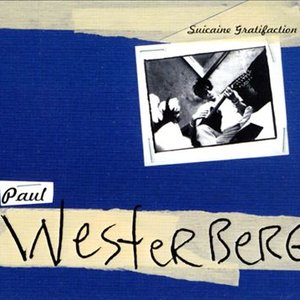
Published on Apr 15, 1999
It’s gotta be hard being Paul Westerberg these days. Once the
drunken clown and all around delinquent leader of the Replacements,
his reputation proceeded him. Now into his third solo record, it
hasn’t been easy. Everybody wants him to be Westerberg circa 1980
something. But here’s a news flash to all you Replacements fans out
there: this is not a Replacements disc and if that’s what you want,
forget it. But if you want a great disc, go buy 100 copies and give
them to all your friends. It’s that good. But you have to let the
past die along with the now worn-out glory of the Mats hey-day.
That said, this album is the first serious attempt by Westerberg
to completely disconnect from his past while surveying the damage
done by it. Self-described as clinically depressed after his last
tour, Westerberg buried himself in his basement and recorded a set
of songs that no longer feel self-conscious and guilty about his
past nor does Westerberg even make a token musical nod to the Mats.
Having accomplished this freedom,
Suicaine Gratifaction is by far Westerberg’s best work and
the first to be completely and totally his own.
Mostly recorded by Westerberg on all vocals and instruments with
studio overdubs added later, the songs on
Suicaine Gratifaction are so personal, they feel almost
intrusive and claustrophobic in their intimacy. The edge isn’t gone
from Westerberg’s considerable songwriting skills, but these songs
are infinitely sadder and wiser.
The record mixes a good dose of folky ballads, many with only
Westerberg on piano and vocals, and a few rockers, but this isn’t a
record for old Replacement fans looking for another
Tim or
Let It Be. The rocker isn’t completely dead and gone, but
this collection of thoughtful and pensive songs is no longer
painfully reminiscent of Westerberg’s musical past. There is a
strangely quiet confidence in these songs that also outshines his
earlier solo work on
14 Songs and
Eventually, which both seemed uneven and too similar to the
pre-solo Westerberg. While the issues he struggles with could
almost be classified as part of a mid-life crisis–love,
commitment, depression, the trappings of fame–the truth is Paul
has grown up and it’s been an often lonely and confusing
process.
Struggling with fame his entire career, the first track, “It’s A
Wonderful Lie”, baldly addresses the truth that fame is a pose, a
total sham, referring to his own youthful 15 minutes of fame. In
that same vein of self-deprecation is the mid-tempo “Best Thing
That Never Happened.” An often overlooked asset is Westerberg’s
scratchy yet plaintive voice which is used with a particularly
touching deftness here. Alternatively vaguely optimistic and
downright dejected, his vocals are what make many of the ballads
work from the soul-baring “Born For Me” to the tender “Tears
Rolling Up Our Sleeves.”
The thankfully sparse co-production by Don Was and Westerberg
help keep this album devoid of artifice and pretense, but in its
simplicity lies the trembling beauty of a Paul-turned riff or
lyrical wisecrack.
I still enjoyed the rock cuts on this disc as much as the
ballads. “Looking Out Forever” with its Pettyesque guitars and
Was’s thunderous bass is a great cut. Perhaps the strongest song ,
“Fugitive Kind”, contemplates his evaporation from being the
darling of the alternative music scene into a self-induced
“fugitive” that brought
Suicaine Gratifaction to fruition. There’s also a nice
appearance by Soul Asylum’s Dave Pirner and Laura Kanini on
background vocals that flesh out the track. This is one of the few
songs that feels polished by a studio’s touch.
My biggest complaint is too many tracks feel a little too much
like demos and almost unfinished. But on “Fugitive Kind”, we hear
Westerberg burning on the guitar, the fierce, raw emotion returning
into his playing. It makes you damn glad the guy still likes to
rock n roll, if only occasionally.
I usually am not fond of my heroes mellowing. It makes me feel
old and out of it. I was one of those rampant Mats fans that got
stomped on by other crazy, drunk fans to watch them play in the
early eighties. I thought I was part of something special watching
them, something I’ve yet to see again in any live band, before or
since. But living in the past is dangerous and often tragic.
Westerberg seems to be reaching forward, however tentatively, in an
effort to find his own voice and a new, more comfortable (dare we
say mature???) musical style.
These songs aren’t perfect, but damn wonderful.
Suicaine Gratifaction feels special, as if for once we’ve
all been invited inside to witness a very special and private
moment of this gifted songwriter. Let’s hope he tours–he’s
swearing he won’t–because I think a lot of old fans might be glad
to see their boy’s all grown up and ready to speak the truth, just
a bit more quietly.